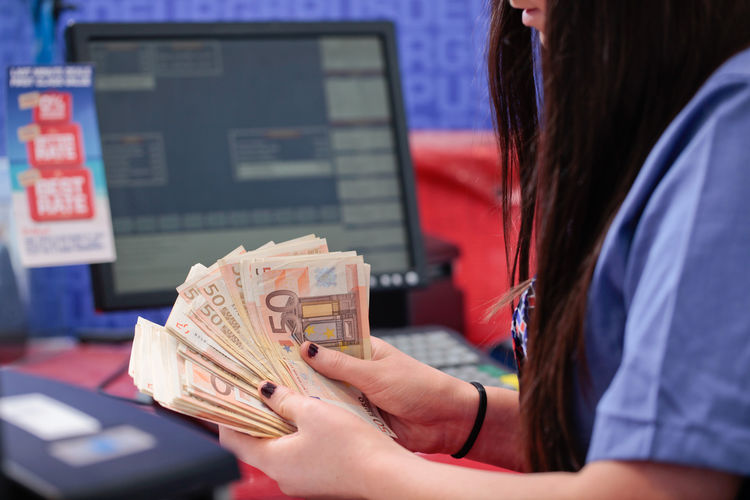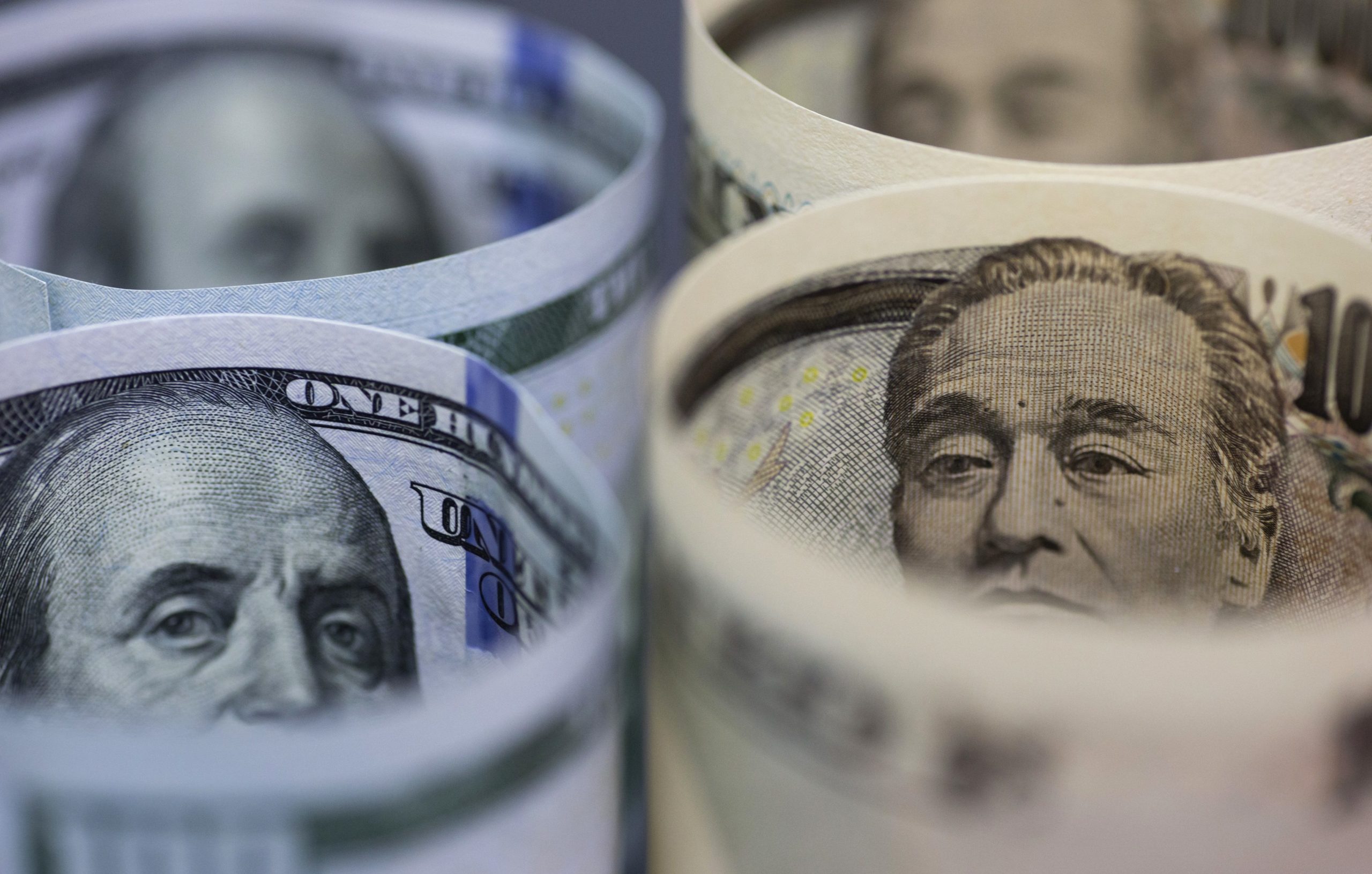- FX Market Gets Boost as Travelex Sells Dollars to BDCs
Liquidity in the foreign exchange (FX) market got a boost, following yesterday’s sale of dollars to authorised Bureau de Change (BDC) operators in the country by Travelex.
In line with the Central Bank of Nigeria’s (CBN) directive, 2,529 BDCs got $8,000 each from Travelex for onward sales to retail customers. This amounted to a total of $20,472,000 that the currency dealers received.
The development is expected to improve liquidity in the market and also make dollars more available to retail customers.
The President, Association of Bureau de Change Operators of Nigeria (ABCON), Alhaji Aminu Gwadabe, who confirmed the cash injection, expressed optimism that the intervention would help improve dollar supply in the market.
“We are happy because the pressure in the market has eased. But our members are not happy because we are not part of the policy. Up till now, our volume has been capped at $8,000 and our buying rate is still N381 to the dollar, which is far higher than the selling rate of the banks.
“We have written to the central bank, especially on the issue of rate disparity, so that people would not take advantage of the opportunity to round trip,” the ABCON president said.
The naira traded between N440/$ and N445/$ at some parallel market points in Lagos.
The CBN also revealed yesterday that it would sell dollars via a book-building process, a process of capturing demand in the market, to clear the backlog of dollar demand for companies importing machinery, airline equipment, and petroleum products.
Under this arrangement, bidding firms were required to pay the naira equivalent for their dollar bids on the spot market yesterday, while the dollars will be delivered in two months time, Reuters reported. But the CBN did not say how much it would offer at the sale.
The CBN recently introduced new FX measures, which among other objectives was aimed at easing the burden of travellers and ensuring that transactions are settled at much more competitive exchange rates.
The CBN, in addition, yesterday distanced itself from news making the rounds and a video in circulation on various social media platforms, alleging that the central bank and the federal government were behind the arrest of one Mr. Babatunde Gbadamosi, a Lagos-based businessman and former governorship candidate by the Department of Security Services (DSS).
It was alleged that Gbadamosi had exposed in detail the monumental organised foreign currency fraud under the Muhammadu Buhari administration and officials of CBN, which according to reports, led to the fine-tuning of the country’s FX policy.
Addressing a media briefing on the sidelines of a workshop for financial journalists in Sokoto, the acting Director, Corporate Communications, CBN, Mr. Isaac Okorafor, stressed that there was no link between the naira rally and the arrest of Gbadamosi.
Okorafor said: “There is a trending video saying that the naira has appreciated, somebody is in detention. I don’t know how Nigerians try to establish these links.
“This is falsehood there and there is no relationship. Somebody did something criminal, the law caught up with the person and he wants to use that to make himself a victim.
“I saw a video clip that circulated about somebody saying that we were selling dollars at 61 kobo.
“I want to state categorically that there is no relationship whatsoever between the allegation by the so called person that dollar was being sold at 61 kobo and the current appreciation of the naira.”
Okorafor explained that what led to the recent appreciation of the naira against the dollar was because the CBN did a lot of intelligence on the market and realised that much of what was driving demand for FX was a bubble and speculative attacks against the naira.
According to him, the CBN also decided to ease the demand for FX for personal travel allowance, schools fees and medicals by pumping dollars into that segment of the market.
“The other issue was that the level of our foreign reserves before now, we did not feel was comfortable enough to do the kind of intervention we needed. Now, we have decided to intervene at this time because we are a bit more comfortable with the level of external reserves.
“That was why when we intervened, the market reacted positively and the naira started gaining strength.
“As proof that, when we supplied $500 million to the market, only $371 million was taken up. That tells you that it was all a bubble. The real demand was $371 million. When we supplied $230 million, only $221 million was taken up.
“So, anybody who has contravened the law and the security agencies have caught up with him, should go and face his or her case and stop causing confusion among participants in the market,” the CBN spokesman said.


 Forex3 weeks ago
Forex3 weeks ago
 Naira2 weeks ago
Naira2 weeks ago
 Billionaire Watch2 weeks ago
Billionaire Watch2 weeks ago



 Naira3 weeks ago
Naira3 weeks ago






 Naira2 weeks ago
Naira2 weeks ago




 Naira1 week ago
Naira1 week ago




 Naira4 weeks ago
Naira4 weeks ago






 Naira1 week ago
Naira1 week ago























